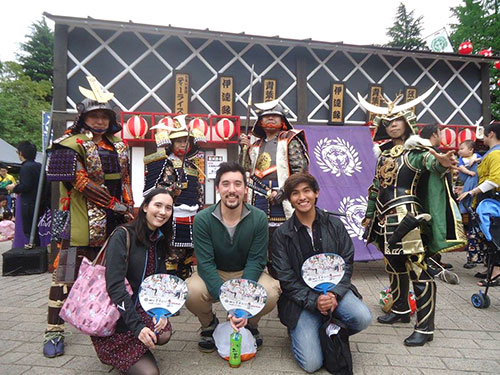
Dressed for work outside host’s farm in Akan-cho, Hokkaido.
My Fulbright Story

Dressed for work outside host’s farm in Akan-cho, Hokkaido.

For Taiyo Scanlon-Kimura, a Fulbright Fellowship made him realize that literally getting his hands dirty might be preferable to sitting at a desk all day.
A year of research, volunteering and traveling around Japan opened his eyes to new areas of study, including food and sustainability, in addition to reinforcing his focus on the country, U.S.-Japan relations and policy-making.
With a fresh B.A. from Oberlin College in East Asian Studies and Politics, he had intended to study Japanese and the nation’s agricultural and food policies, within the context of aging, depopulating and economically declining rural areas, before applying to a Ph.D. program in political science. But while he still wants to act as a trans-Pacific bridge and pursue those interests in a career, he’s less certain about academia now.
“I was the happiest when I was traveling around, getting dirty and working on farms and with people,” says Mr. Scanlon-Kimura, who studied the work of and volunteered with numerous farmers and a fisherman across the archipelago. “That spoke to me — being out and getting up at 4:30 AM so I can go pull tomatoes off the vine, and working until five. If I enjoyed that more than sitting at my desk and reading books for six hours, that might be something to pay attention to.”
While Mr. Scanlon-Kimura, whose father is Japanese, had studied the language and traveled to Japan several times before, he says coursework in Japanese, organizing his own study plan and living and travel arrangements and building up new social networks were a true challenge. “Fulbright was definitely the most profound experience I have had in my short adult life,” he says.
For now, back at his alma mater's career center, he is advising students on post-graduation jobs, internships — and fellowships. The tally so far: three Fulbright award winners and a current finalist.








